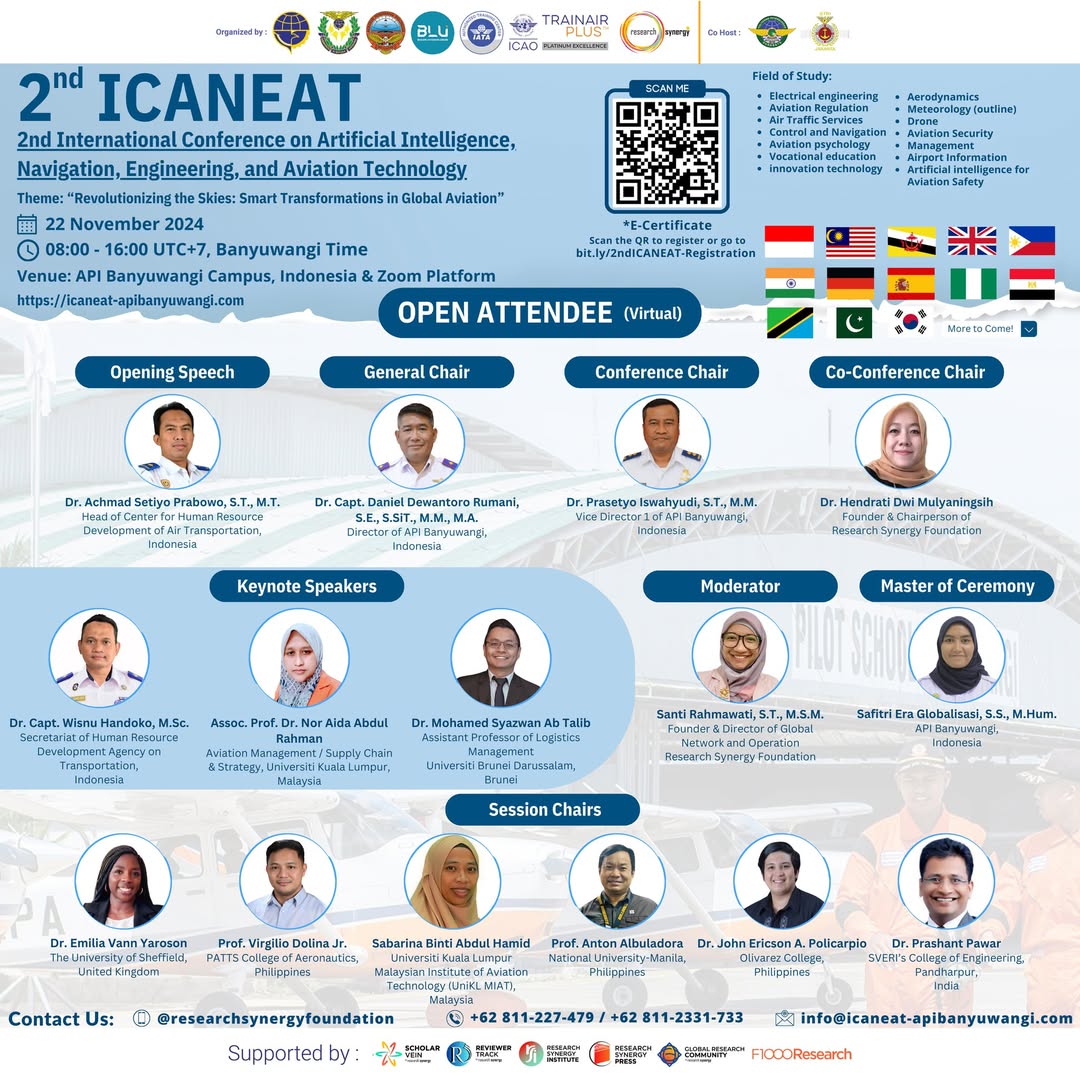Flight Scheduling with Deep Learning of RMSprop Optimization
Keywords:
Deep_Learning; RMSprop; Flight_Scheduling; Aviation_Optimization; Operational_Efficiency; CNN; Machine_Learning.Abstract
Flight scheduling is a critical aspect of aviation, where precision in route planning and time management is paramount. Traditional methods often fall short in adapting to the dynamic nature of flight operations, leading to delays and inefficiencies. This paper explores the integration of deep learning techniques, specifically the Root Mean Square Propagation (RMSprop) algorithm, to optimize flight schedules. We demonstrate how this method can be used to adjust routes and times, ultimately improving operational efficiency, reducing delays, and enhancing customer satisfaction. By employing deep learning, aviation companies can create more responsive scheduling systems that react effectively to the complexities of modern air travel.
References
[1] H. Liu, S. Li, F. Sun, W. Fan, W.-H. Ip, and K.-L. Yung, “Adaptive Dynamic Programming with Reinforcement Learning on Optimization of Flight Departure Scheduling,” Aerospace, vol. 11, no. 9, p. 754, Sep. 2024, doi: 10.3390/aerospace11090754.
[2] D. N. Sirait, M. Amril, I. Wardani, D. Nasution, Y. H. Simanjuntak, and F. Septiadi, “An Optimization Of Flight Scheduling Using A Deep Learning Approach Utilizing Root Mean Square Propagation In Adjusting Routes And Time For Operational Efficiency,” JHSS (Journal of Humanities and Social Studies), vol. 4, no. 2, pp. 271–275, 2024.
[3] S. Malladi, K. Lyu, A. Panigrahi, and S. Arora, “On the SDEs and Scaling Rules for Adaptive Gradient Algorithms,” Nov. 2024.
[4] Y. Xu, S. Wandelt, and X. Sun, “Airline scheduling optimization: literature review and a discussion of modelling methodologies,” Intelligent Transportation Infrastructure, vol. 3, Feb. 2024, doi: 10.1093/iti/liad026.
[5] M. Elenchezhiyan and A. Kumar, “A comparison of adaptive optimizers for nonlinear aerodynamic modeling using flight test data,” Aerospace Systems, Sep. 2024, doi: 10.1007/s42401-024-00320-2.
[6] H. Liu, S. Li, F. Sun, W. Fan, W.-H. Ip, and K.-L. Yung, “Adaptive Dynamic Programming with Reinforcement Learning on Optimization of Flight Departure Scheduling,” Aerospace, vol. 11, no. 9, p. 754, Sep. 2024, doi: 10.3390/aerospace11090754.
[7] J. Liu, D. Xu, H. Zhang, and D. Mandic, “On hyper-parameter selection for guaranteed convergence of RMSProp,” Cogn Neurodyn, vol. 18, no. 6, pp. 3227–3237, 2024, doi: 10.1007/s11571-022-09845-8.
[8] D. Xu, S. Zhang, H. Zhang, and D. P. Mandic, “Convergence of the RMSProp deep learning method with penalty for nonconvex optimization,” Neural Networks, vol. 139, pp. 17–23, Jul. 2021, doi: 10.1016/j.neunet.2021.02.011.
[9] M. Lambelho, M. Mitici, S. Pickup, and A. Marsden, “Assessing strategic flight schedules at an airport using machine learning-based flight delay and cancellation predictions,” J Air Transp Manag, vol. 82, p. 101737, Jan. 2020, doi: 10.1016/j.jairtraman.2019.101737.
[10] R. Elshamy, O. Abu-Elnasr, M. Elhoseny, and S. Elmougy, “Improving the efficiency of RMSProp optimizer by utilizing Nestrove in deep learning,” Sci Rep, vol. 13, no. 1, p. 8814, 2023.
Downloads
Published
Issue
Section
License
Copyright (c) 2025 Darmeli Nasution , Herdianto (Author)

This work is licensed under a Creative Commons Attribution-ShareAlike 4.0 International License.









